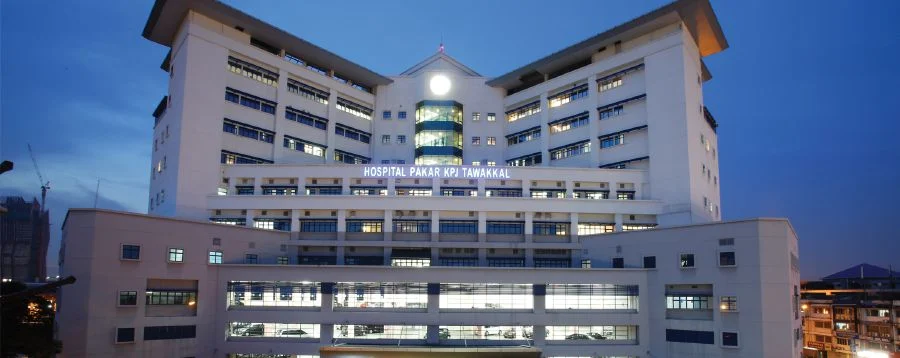
Al-Aqar Healthcare REIT overseas push has recently drawn attention from investors and analysts alike. As Malaysia’s first Islamic healthcare real estate investment trust, Al-Aqar has long been a stable name in the local healthcare property sector. But its new focus on international expansion, particularly into Indonesia and Australia, has raised several red flags regarding financial stability, operational efficiency, and market readiness.
This article breaks down the top 5 risks highlighted in this ambitious overseas strategy, giving investors and stakeholders a clearer view of what could go wrong—and why caution is essential.

One of the key risks flagged in Al-Aqar Healthcare REIT overseas push is currency volatility. Since the REIT is based in Malaysia but is targeting assets in Australia and Indonesia, fluctuations in exchange rates can significantly impact earnings.
A weakening ringgit, for instance, can increase the cost of property acquisition and reduce repatriated income from overseas assets. This directly affects the REIT’s distribution per unit (DPU), a critical metric for dividend-focused investors.
While currency hedging is a possible solution, it adds further financial complexity and cost to operations. Moreover, long-term hedging is not always feasible or affordable in volatile regions like Southeast Asia.
Another concern in Al-Aqar Healthcare REIT overseas push is dealing with regulatory uncertainty in foreign markets. Healthcare real estate operates under strict local regulations regarding ownership, patient data, medical operations, and hospital management.
In countries like Indonesia, foreign ownership rules can shift with political tides, and the healthcare sector is especially sensitive to policy changes. Australia, though more transparent, enforces complex legal frameworks for real estate investment and healthcare licensing.
A minor compliance failure in any of these regions could delay operations, increase legal costs, or even result in asset seizure or divestment.
Managing healthcare properties abroad is inherently more complicated than domestic operations. Al-Aqar Healthcare REIT overseas push involves navigating multiple property markets, healthcare standards, and tenant expectations.
Each country’s healthcare ecosystem varies in patient care models, insurance systems, and facility management. These factors make it difficult to maintain consistent asset quality and tenant satisfaction.
Moreover, hiring local management teams or outsourcing operations adds an additional layer of operational and reputational risk. A single underperforming asset or tenant dispute in a foreign country can have ripple effects on the REIT’s valuation and investor trust.
Historically, Al-Aqar has been known for its specialization in Malaysian healthcare facilities, such as hospitals, nursing colleges, and elder care centres. But the Al-Aqar Healthcare REIT overseas push could dilute this focused portfolio.
By acquiring varied healthcare assets abroad, the REIT might lose its niche positioning. Investors attracted to Al-Aqar for its Islamic, healthcare-specific, Malaysia-based model may begin to question its evolving identity.
Such dilution can make the REIT appear less reliable, especially among conservative investors seeking stable and familiar asset classes.
Lastly, expanding overseas often requires significant capital investment—either from equity or debt. Recent analyst reports suggest that Al-Aqar Healthcare REIT overseas push may increase its gearing ratio, placing additional strain on its balance sheet.
If debt is used to fund new acquisitions, interest payments could eat into net income, leading to reduced dividends. If equity is raised, current unit holders may face dilution of their holdings.
In either case, there’s a genuine concern that the REIT may overstretch itself in a bid to grow too fast, too soon.
Investor sentiment remains mixed. While international diversification is generally seen as a long-term positive, many investors feel Al-Aqar Healthcare REIT overseas push lacks the risk mitigation and transparency needed at this stage.
So far, Al-Aqar’s management has emphasized that overseas ventures will proceed cautiously, with detailed due diligence and phased acquisition strategies. However, the lack of specific information on how these risks will be addressed continues to cause unease among both institutional and retail investors.
Market analysts have also highlighted that while international healthcare REITs do offer high returns, they come with equally high risks, particularly in developing regions like Southeast Asia.

The coming months will be critical for Al-Aqar Healthcare REIT overseas push. A few successful acquisitions and clear communication from management could restore investor confidence.
However, the REIT will need to show strong governance, efficient capital allocation, and country-specific expertise to prove that its global strategy is sustainable. Stakeholders will be closely watching the financial results and operational reports tied to any overseas assets.
If handled properly, Al-Aqar’s expansion could make it a regional powerhouse in healthcare real estate. If not, it risks damaging its long-standing reputation in a highly specialized investment segment.
Al-Aqar Healthcare REIT overseas push represents both an opportunity and a risk. Diversifying into new markets could unlock value and improve long-term returns. But the challenges are real—currency risks, regulatory pitfalls, asset management issues, brand dilution, and financial strain are all valid concerns.
Investors should approach with cautious optimism, demanding transparency and accountability as Al-Aqar charts its international path. For now, the risks may outweigh the rewards—until proven otherwise.
Also Read – Elliott Calls for Sumitomo Realty Improvement: 3 Key Changes Needed
